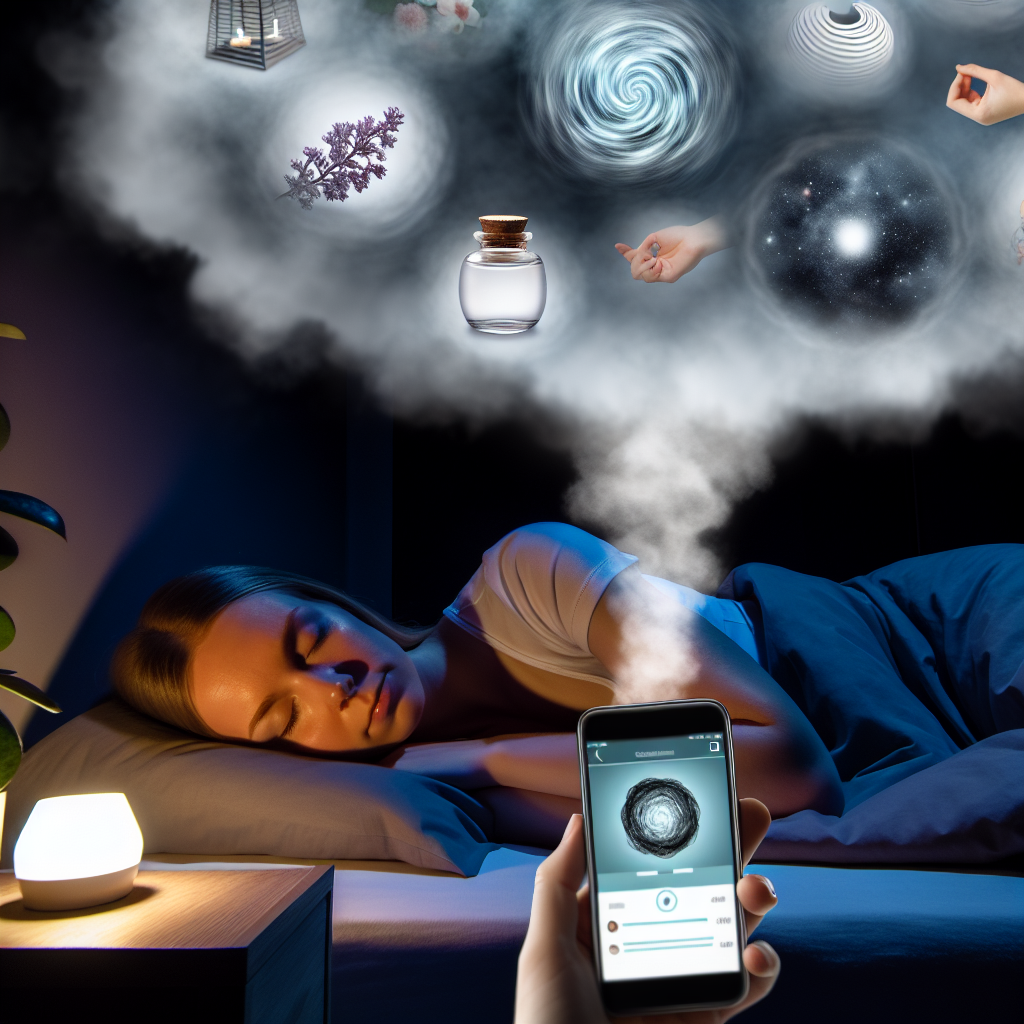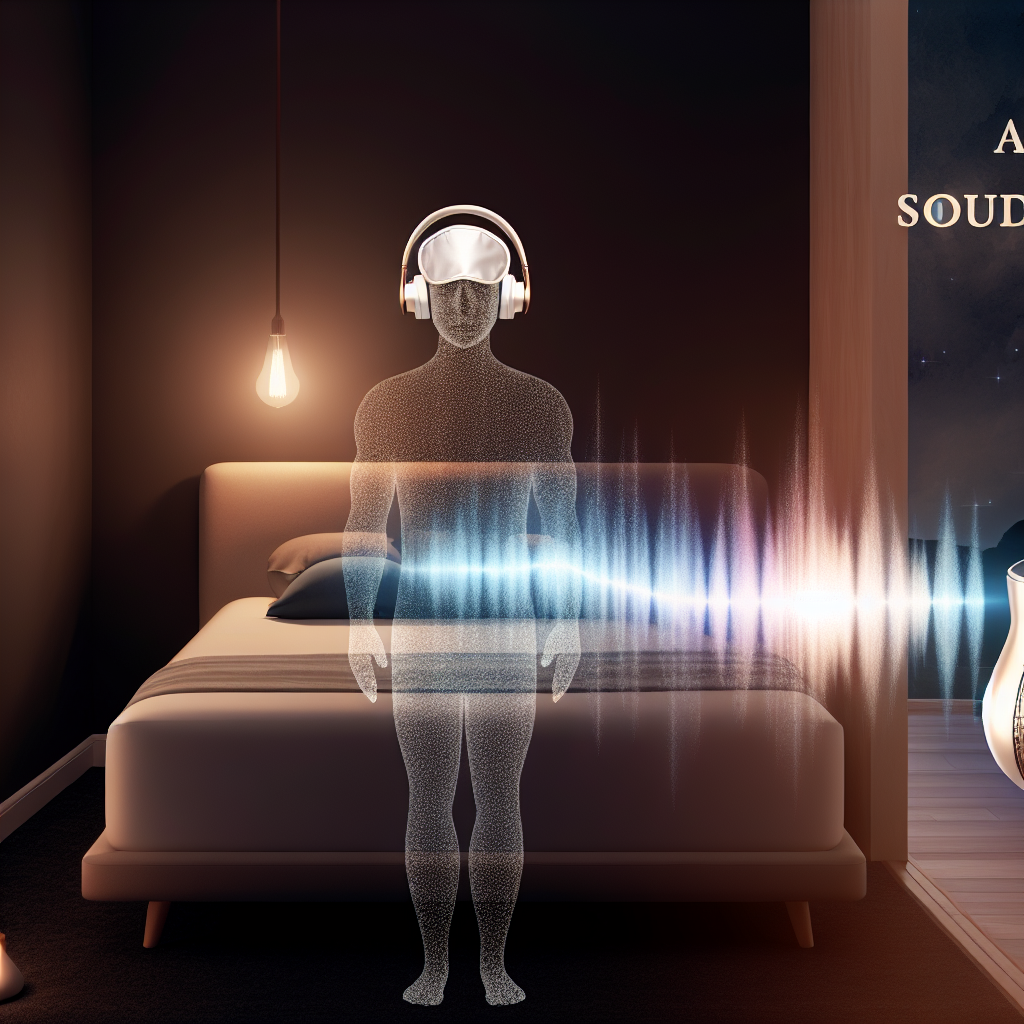Stop Nighttime Rumination – Meditation App for Better Sleep
Introduction
For many individuals, the day’s responsibilities don’t end when the lights go out. Instead, a new challenge begins: the battle against nighttime rumination. This condition, characterized by persistent and repetitive thoughts about stressors or situations, is a common barrier to restful sleep. Whether it’s replaying an awkward conversation, anticipating work deadlines, or worrying about the future, these mental loops can prevent the brain from calming down, making it incredibly difficult to fall and stay asleep.
The inability to control racing thoughts at night is not only frustrating but can be detrimental to health. Studies reveal that ongoing sleep deprivation can weaken the immune system, increase the risk of cardiovascular disease, and impair cognitive clarity. Furthermore, prolonged rumination is closely linked to anxiety and depression, forming a cycle that’s hard to break without structured methods.
Fortunately, today’s digital tools are stepping up to address this issue. Meditation apps for sleep have gained popularity as a natural, non-pharmaceutical solution to reduce nighttime anxiety and promote restful sleep. These apps blend ancient mindfulness traditions with cutting-edge technology, offering accessible user experiences that guide individuals in calming their thoughts and entering a more restful, tranquil state.
These applications are particularly effective because they emphasize mindfulness techniques — practices that focus attention on the present moment in a non-judgmental way. By grounding thoughts in the now and gently redirecting them away from future worries or past regrets, mindfulness practices create a soothing internal environment ideal for sleep.
With a wide selection of content including sleep meditations, bedtime stories, nature sounds, and breathing practices, meditation apps for insomnia become an integral part of a healthy nighttime routine. Whether you’re new to meditation or an experienced practitioner, these apps offer step-by-step instructions that anyone can follow.
Today, people of all ages are searching for healthier, sustainable solutions to sleep challenges. Meditation apps stand out as a research-backed, deeply empowering resource. In the following sections, we’ll explore the scientific foundation validating the role of mindfulness and app-based interventions in promoting better sleep.
Features and Scientific Studies Supporting Meditation Apps for Sleep
The growing prevalence of sleep disorders has led researchers to explore alternative, non-medicated methods for enhancing sleep quality. Among the most promising is mindfulness meditation for sleep, which targets the underlying mental triggers of disturbed sleep, such as anxiety, emotional dysregulation, and repetitive thinking.
One landmark study published in JAMA Internal Medicine in 2015 demonstrated that mindfulness meditation significantly improves sleep quality. In this study, older adults who practiced mindfulness experienced fewer symptoms of insomnia and depression compared to those using traditional sleep hygiene practices. The results revealed that mindfulness helps calm ruminative thought patterns by fostering present-focused awareness and emotional balance.
Furthermore, a meta-analysis in Behavior Research and Therapy highlighted how mindfulness-based interventions significantly reduce intrusive thoughts and anxiety — two key contributors to delayed sleep onset and disrupted rest.
Meditation apps such as Calm, Headspace, and Insight Timer offer targeted sessions designed by sleep experts and psychologists. Their sleep-focused content includes progressive muscle relaxation, mindful breathing, and body-scanning exercises, which are known to soothe the nervous system and reduce cognitive noise before sleep.
An important study by JMIR Mental Health (Huberty et al., 2019) assessed the effectiveness of the Calm app among college students. The study found significant improvements in reported sleep latency (time to fall asleep), sleep satisfaction, and mental health outcomes within a few weeks of regular app use.
In addition, neuroscience research has offered biological insights into how mindfulness works. A 2011 study published by the NIH demonstrated that mindfulness practice can deactivate the brain’s default mode network (DMN) — a network associated with rumination and overthinking. By shifting activity away from this network, meditation facilitates mental quietness and restfulness conducive to better sleep.
Another highly valued benefit of meditation apps is their ability to offer a consistent, automated routine. Users can set reminders, interact with daily check-ins, and track improvements through sleep logs. This structure helps reinforce healthy sleep habits and increases adherence to mindfulness practices over time.
In contrast to sleep medications, which may carry side effects and dependency risks, meditation apps for better sleep offer a sustainable, skill-building alternative. Users gain tools for emotional self-regulation, stress reduction, and inner calm, fostering long-term improvements in sleep and mental wellness.
Conclusion
Nighttime rumination is more than an inconvenience—it fundamentally disrupts sleep and diminishes well-being. Replaying daily stressors and future worries keeps the brain in an activated state, making it difficult to relax. Over time, this ongoing mental activity can lead to serious health effects such as chronic insomnia, heightened anxiety, and physical fatigue.
Fortunately, meditation apps designed for sleep offer a proven, digital solution. Built on the principles of mindfulness, they help users disconnect from mental clutter and ease into sleep effortlessly. By combining guided meditations, breathing techniques, soft soundscapes, and personalized routines, these tools facilitate a calming bedtime experience.
Whether you’re a student overwhelmed with coursework, a parent juggling responsibilities, or an older adult dealing with age-related sleep changes, using a meditation app to stop nighttime rumination can be a transformative part of your nightly routine. With ongoing research supporting their efficacy, these apps provide more than just a convenience — they offer a path to deeper rest, improved resilience, and a clearer mind in today’s always-on world.
Concise Summary
Nighttime rumination, marked by racing and repetitive thoughts, often disrupts sleep and increases stress. Meditation apps like Calm and Headspace help break this cycle by utilizing mindfulness practices proven to improve sleep quality and mental resilience. Supported by scientific studies from JAMA Internal Medicine and NIH, these apps offer guided meditations, breathing exercises, and sleep stories to reduce overthinking and promote restorative sleep — all in a user-friendly format. Whether you’re suffering from insomnia, anxiety, or sleep-related stress, meditation apps are a natural, research-backed solution for achieving better rest and emotional balance.
References
– Black, D. S., O’Reilly, G. A., Olmstead, R., Breen, E. C., & Irwin, M. R. (2015). Mindfulness Meditation and Improvement in Sleep Quality and Daytime Impairment Among Older Adults With Sleep Disturbances. JAMA Internal Medicine.
– Gu, J., Strauss, C., Bond, R., & Cavanagh, K. (2015). How do mindfulness-based cognitive therapy and mindfulness-based stress reduction improve mental health and wellbeing? A systematic review and meta-analysis. Behavior Research and Therapy.
– Huberty, J., Green, J., Glissmann, C., Larkey, L., Puzia, M., & Lee, C. (2019). Efficacy of the Mobile Meditation App, Calm, on Sleep Disturbances in Adults: Randomized Controlled Trial. JMIR Mental Health.
– Brewer, J. A., et al. (2011). Meditation experience is associated with increased cortical thickness and decreased activity in the default mode network. National Institutes of Health (NIH).

Dominic E. is a passionate filmmaker navigating the exciting intersection of art and science. By day, he delves into the complexities of the human body as a full-time medical writer, meticulously translating intricate medical concepts into accessible and engaging narratives. By night, he explores the boundless realm of cinematic storytelling, crafting narratives that evoke emotion and challenge perspectives.
Film Student and Full-time Medical Writer for ContentVendor.com




